In response to a critical funding gap affecting the NF1 research community, the Neurofibromatosis Therapeutic Acceleration Program (NTAP) has launched a new training initiative: the NF1 Basic and Translational Laboratory Scholars Program. This program is designed to support outstanding early-career laboratory scientists committed to accelerating discovery and translational science in neurofibromatosis type 1 (NF1).
The RFA (Request for Applications) for this time-sensitive opportunity was officially released on July 1, 2025, with Letters of Intent due by October 20, 2025, and full applications due by November 21, 2025. Selected awardees will be notified by January 30, 2026, and begin their funding term in May or June of 2026, for a period of 2 to 3 years.
Addressing a Critical Gap in Research Training
This new program comes in the wake of the unexpected pause in funding for the CDMRP Neurofibromatosis Research Academy, a federal initiative that would have played a pivotal role in nurturing NF1-focused scientists. Recognizing the urgency, NTAP acted quickly to develop an interim solution.
“When the NF Research Academy was paused, we knew we couldn’t wait,” said Dr. Jaishri Blakeley, Executive Director of NTAP. “The loss of momentum in training the next generation of NF1 discovery scientists would have long-term consequences. This program is our way of saying: NF1 science cannot stand still.”
Building Future Leaders in NF1 Science
The NF1 Basic and Translational Laboratory Scholars Program is tailored specifically for PhD (or equivalent doctoral) scientists who are within five years of their first faculty or faculty-equivalent position. The goal is to foster a cohort of independent investigators who are committed to improving understanding and treatment of NF1 through rigorous laboratory research.
Each Scholar will receive:
- Up to $100,000 per year in personnel salary support (within NIH salary cap)
- Up to $30,000 per year in research supply funding
- $5,000 annually for travel, education, and program development
- A $10,000 annual mentorship stipend to support structured career guidance
Awardees will also benefit from NTAP’s network of clinician-researchers, cross-disciplinary collaborations, and access to mentorship opportunities that focus on both scientific and professional development.
A Focus on High-Need Areas
While all areas of NF1 science are eligible, NTAP will give particular consideration to proposals addressing cutaneous neurofibromas and cognitive function and development, two areas of high unmet need in NF1 care.
“We want to encourage bold, collaborative, and impactful science,” said Dr. Blakeley. “Whether it’s a fundamental question about tumor biology or an innovative model to study cognition, this is the time to push forward with urgency and creativity.”
Who Should Apply?
Ideal candidates will have a demonstrated commitment to NF1 science, strong academic credentials, evidence of research excellence, and institutional support. While not required, priority will be given to investigators who have completed the Children’s Tumor Foundation’s Young Investigator Award, signaling readiness to transition into independent research leadership.
Importantly, the program is open to investigators based at nonprofit research institutes, academic medical centers, federal/state labs, and—with justification—for-profit research institutions.
“This is an incredible opportunity for scientists who have just launched independent NF1-focused labs (or are primed to do so) or are ready to pivot successful labs in other areas to NF1-focused research,” Dr. Blakeley emphasized. “We hope institutions and mentors across the country will encourage their emerging stars to apply.”
Supporting Long-Term Success
Consistent with NTAP’s philosophy, the program uses a milestone-based funding model to ensure accountability while providing flexibility. Scholars will be supported not just with financial resources, but with a structured framework that includes:
- Multidisciplinary mentorship committees
- Quarterly progress reporting
- Participation in NTAP and NF-focused research convenings
- Data sharing through the Synapse platform
NTAP anticipates funding 1–2 Scholars, depending on the strength of the applicant pool.
Looking Ahead
While this program is designed as a temporary solution to a current funding gap, its potential impact is anything but temporary.
“This is more than a stopgap—it’s a launchpad,” said Dr. Blakeley. “The researchers supported through this program will be the next authors of landmark studies, the next leaders of NF-focused labs, and, we hope, the discoverers of tomorrow’s treatments and cures.”
Learn More & Apply
- 🧪 Download the Full RFA
- ✍️ Submit a Letter of Intent by October 20, 2025
- 📬 Submit Full Application by November 21, 2025 via ProposalCentral
- 📩 Questions? Email us at info@n-tap.org
